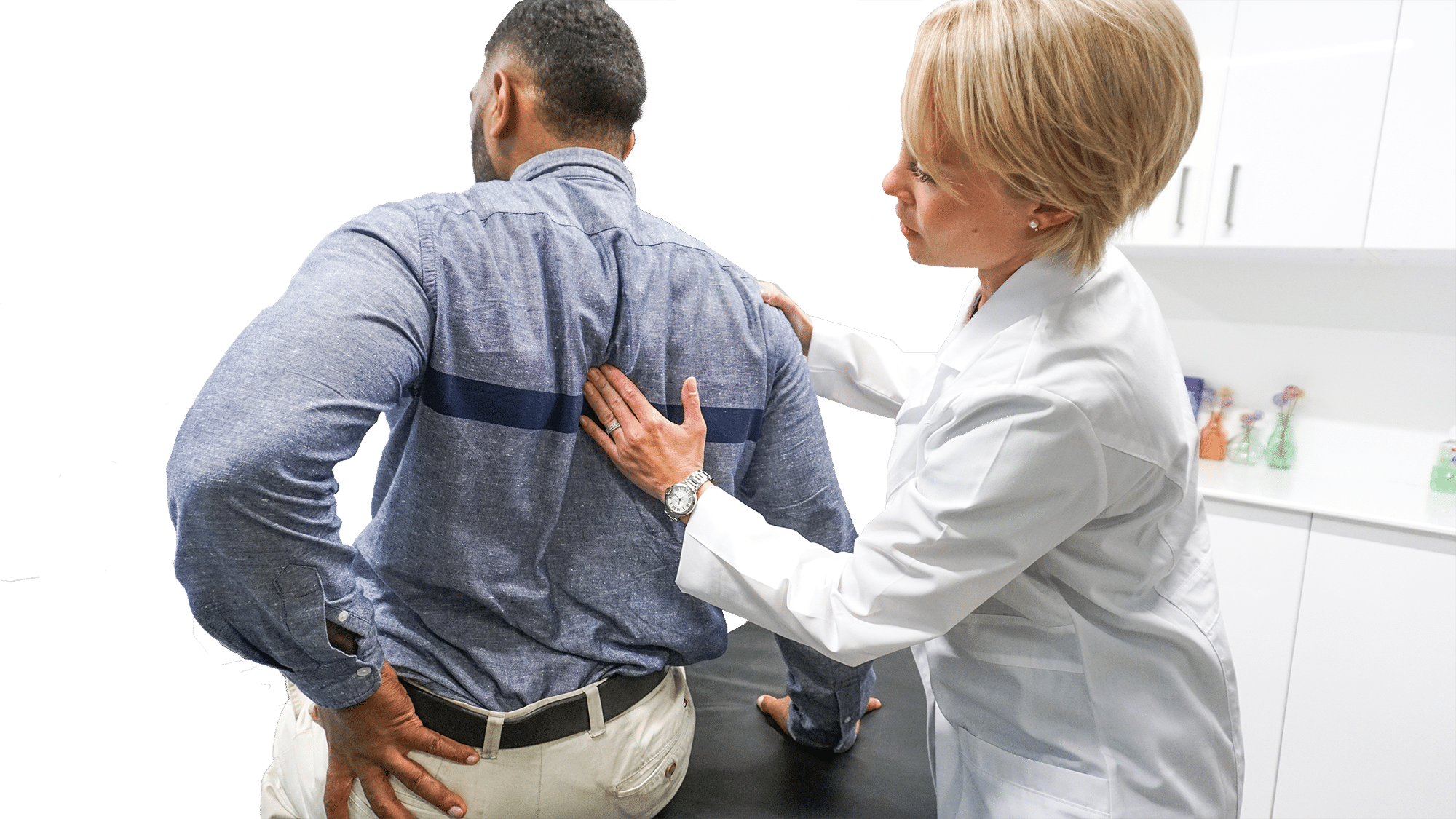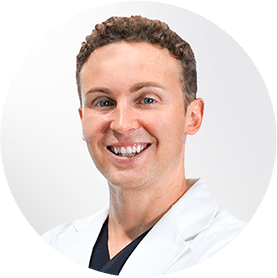4 Non-Surgical Options to Treat Sciatica, Recommended by Renowned Sciatica Doc Near Me in Paramus
November 27, 2021
Low back pain can seem harmless at first, but it can quickly disrupt your everyday life. Sciatica pain usually starts in the lower back, but it can progress to the hips and legs, causing back discomfort, nerve pain, as well as numbness and tingling in the affected areas. It can gradually affect your capacity to do everyday tasks such as walking, sitting, driving, and working if the source of the pain is not identified and properly treated.
If you start to experience pain in your lower back, it’s likely that something is putting stress on the sciatic nerve. Injuries, poor posture, and a variety of back disorders, including degenerative disc disease and ruptured discs, can put additional strain on the sciatic nerve, causing pain as well as other sciatica symptoms that linger until the inflammation passes.

In most cases, anti-inflammatory medicine helps alleviate these symptoms, but you should always consult your pain specialist and discuss your condition to determine the most efficient treatment options.
Surgery is usually the last resort when treating sciatica, as there is a multitude of effective minimally invasive treatments that can help alleviate the pain. If you were searching for a renowned sciatica doc near me in Paramus, you’ve reached the right place! Dr Laura Lombardi is here to discuss some of the most effective non-surgical treatments for sciatica, so continue reading to find out more.
At first, we recommend a few lifestyle changes
In many cases, sciatica pain can be relieved by making simple changes to daily routines and using some at-home care therapy. Hot and cold treatment, which helps decrease inflammation and discomfort, is one of the easiest at-home cures to attempt.

In terms of lifestyle changes, if you must sit for long amounts of time every day, your doctor may recommend that you take regular walking breaks to reduce pressure on your lower back and avoid pain. Sleep on one side with a cushion between your knees to relax the nerve; if you prefer to sleep on your back, place the pillow beneath your knees.
While it may seem contradictory, as pain often urges you to rest, the key to living with sciatica is to avoid sedentary behavior. Develop a simple workout routine to help you strengthen your muscles, enhance your spinal support, and prevent bone degradation as you become older.
Prescription medication can also help
If you tell someone you’re in pain, they’ll probably advise you to take a little pain reliever. While some sciatica symptoms can be alleviated with over-the-counter medications, more severe ones require stronger alternatives, which are normally only available with a prescription.
Prednisone, nonsteroidal anti-inflammatory drugs like Ibuprofen, tricyclic antidepressants, such as Amitriptyline, and opioid analgesics are just a few examples of medications that are routinely used for both acute and chronic pain.
These medications are designed to either totally alleviate pain or reduce it to the point where patients can try other treatments that would otherwise be uncomfortable.
Physical therapy does wonders
Physical therapy can be used as a stand-alone treatment or in conjunction with other types of therapy to aid with the healing process. It usually comprises a series of core-strengthening stretches and exercises that may be done at home or with the help of a skilled physical therapist. It is advised that you schedule an appointment with a physical therapist at least at the beginning of your treatment, to learn the proper routines that you can then follow at home.
With physical therapy, the purpose isn’t always to relieve the pain, but to avoid it, minimize its severity, or strengthen your body so you can cope better with the symptoms. Patients who develop a constant routine report their back and core are now stronger, muscles are less tense, and they are more flexible. Better blood flow is another benefit of physical therapy.
In certain cases, your back doctor may recommend resting for a few days, but once your condition improves, you should gradually include a moderate physical routine in your everyday life.
Minimally invasive procedures have proven incredibly effective
Many individuals feel that the most effective way to cure sciatica without having to see an orthopaedic surgeon is to use minimally invasive procedures. They can aid with pain relief, healing techniques, and even determining what’s causing the sciatic nerve discomfort.
The following two minimally invasive procedures have proven the most effective:
Epidural steroid injections
Herniated discs, degenerative disc disease, and spinal stenosis can all be relieved with epidural injections. The goal of this treatment is to minimize inflammation while also limiting immune system activity in order to reduce the production of inflammatory cells. When injected into the epidural area, steroids spread to nerve terminals and reduce pain.
Selective nerve root blockers
Root blockers are injected at the root of the spinal nerve – the point where it emerges between the vertebrae. The purpose of these injections is to reduce inflammation and pain by lowering the number of pain signals transmitted to the brain on a regular basis.
The treatment can be performed on many nerve roots at once. Some people have immediate pain relief, while others need more than four weeks of treatment to see results.
Chiropractic care, acupuncture, and medical-massage are just a few of the numerous therapy choices pain doctors prescribe.
As you can see, if you want to get your sciatica addressed, a pain specialist can prescribe a variety of non-invasive treatment alternatives. The doctors at our clinic are here to assist you in finding the best-suited treatment option for your condition. Our medical director and doctors are board-certified in pain management and use state-of-the-art equipment to get to the root cause of the problem as soon as possible.
Please don’t hesitate to contact us and book an appointment if you’re seeking a sciatica pain doctor near me in Paramus, New Jersey, at our Paramus clinic on Route 17, near the Paramus Park Mall, in Clifton, in other parts of Jersey, or in New York. We are also available for phone general inquiries.
Book a Consultation
Scheduling a consultation with one of our pain treatment specialists is one of the best ways to determine the proper solution for pain relief.
Meet Our Team of Back Pain Specialists
All of our Pain Doctors in New Jersey are Harvard Trained and Board Certified in Pain Management

Back Pain Doctor Clifton & West Orange NJ
Dr. George Hanna
Dr. Hanna is a Harvard Trained back specialist in New Jersey and New York. He serves as Medical Director of Pain Management.

Back Pain Doctor Clifton & West Orange NJ
Dr. Laura Lombardi
Dr. Lombardi is a Harvard Trained back pain treatment doctor, currently seeing patients in Clifton and West Orange, New Jersey.

Back Pain Doctor Clifton & West Orange NJ
Dr. Shane Volney
Dr. Volney is a Harvard Trained back treatment doctor seeing patients in the NJ areas of Clifton & West Orange, and in NYC.

Back Pain Doctor Clifton & West Orange NJ
Dr. Michael Nguyen
Dr. Nguyen is Harvard Trained and Board Certified in Pain Management. His pain center accepts major medical insurances and Medicare.

Dr. George Hanna

Dr. Laura Lombardi
Dr. Lombardi is a Harvard Trained back pain treatment doctor, currently seeing patients in Clifton and West Orange, and Paramus New Jersey.

Dr. Shane Volney
Dr. Volney is a Harvard Trained back treatment doctor seeing patients in the NJ areas of Clifton & West Orange, and in NYC.

Dr. Michael Nguyen
Dr. Nguyen is Harvard Trained and Board Certified in Pain Management. His pain center accepts major medical insurances and Medicare.
